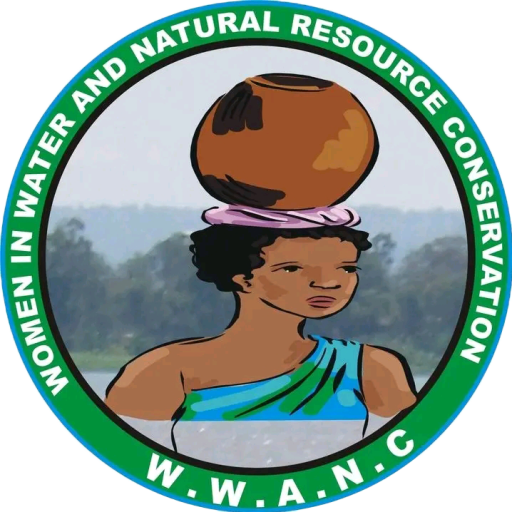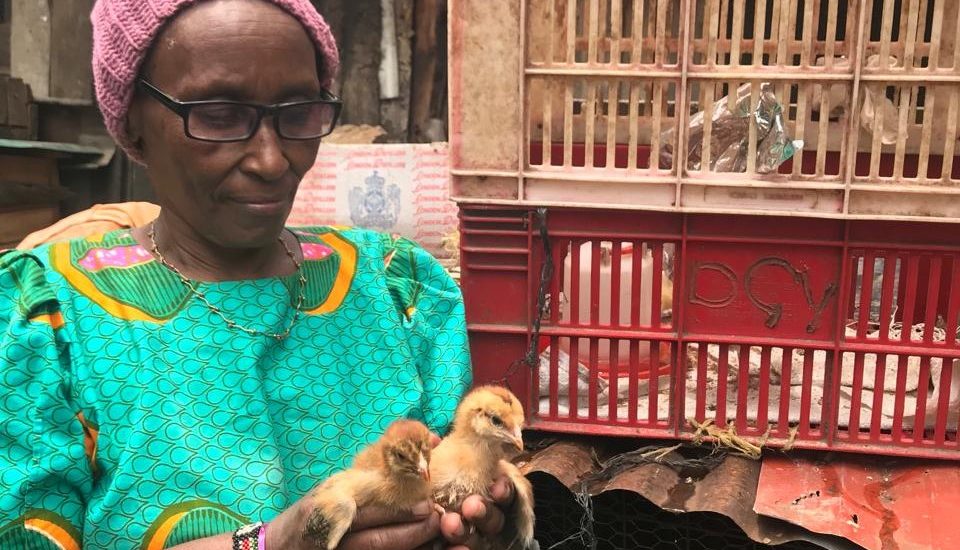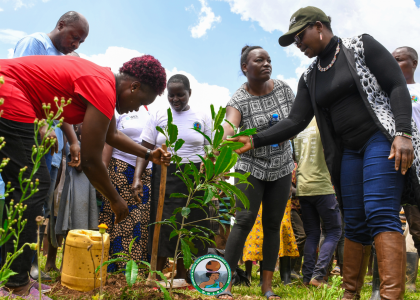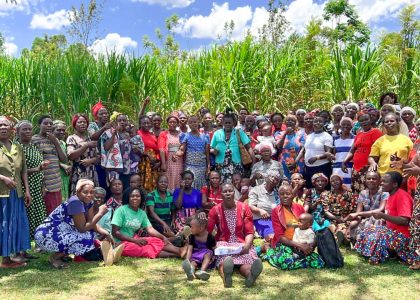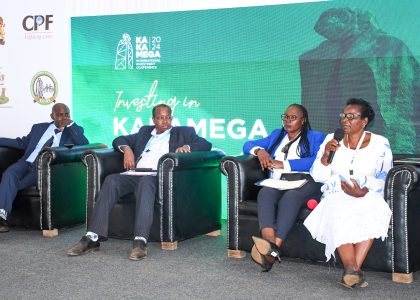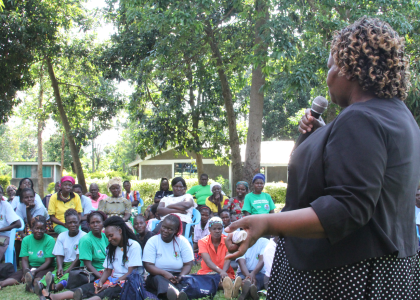Erratic weather patterns in Nakuru caused by deforestation in Dondori forest, the only forest within the town leading to water scarcity and food insecurity caused suffering to most women in Nakuru.
The forest was shrinking due to human activities like logging and agricultural expansion at the expense of environmental conservation causing climate change crisis in the region. This forced women to walk long distances in search of clean water and food for their families.
Amidst these challenges, Emily Mwaura stepped up equipped with knowledge and skills on climate change adaptation, mitigation and resilience, a concept she learned through WEA training in Nairobi, Kenya. After the training, Mama Emily emerged as a beacon of resilience and innovation in her community.
She established Kariko Tree Nursery on her half an acre piece of land, the seedlings from her farm she has used them to plant trees in efforts to restore Dondori forest, sell some to the community for income generation and she is now championing climate change initiatives in her community and so far she has trained over 600 women on tree nursery establishment and management, and climate change mitigation measures.
“Sisi kama wanawake tumeumia sana kutokana na adhari za mabadiliko ya hali ya hewa. Hii imesabibisha sisi kuhijitolea mstari wa mbele kutafuta suluhu kwa mabadiliko haya. (We have suffered as women due to climate change crisis. The suffering has made us to step out and be at the forefront to spearhead efforts towards addressing climate change crisis,)” says Mama Emily adding that she uses her nursery as a model for training other women in her community.
With training in Eco Entrepreneurship (ECO), Mama Emily invested in essential tools like a hosepipe for irrigation, ensuring the sustainability of her farm and tree nursery which has 23,000 indigenous tree seedlings (18,000 ready for planting) which she sells at Ksh 20 each and 500 grafted hass avocados selling at Ksh 200 each.
She has also ventured into the organic fertilizer market, producing and selling organic manure to her community. She produces and uses organic fertilizer from her farm. She is able to make 20 tons of organic fertilizer per year. She sells the organic fertilizer at Ksh 1,500 per 50 kilogram and uses to sustain her family and farming. She has used part of the money to construct her house, fish ponds and a poultry house.
On her model farm, she also practices poultry farming and aquaculture.
Through her initiatives, Mama Emily exemplifies how climate-smart practices can foster economic resilience, protect local ecosystems, and enhance food security.
Her story serves as an inspiring testament to the transformative power of education, innovation, and community engagement. Leading by example, she has inspired others in Nakuru to embrace eco-friendly practices, generate income, and build a more resilient future for themselves and their families.
